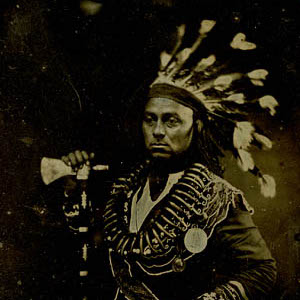Modern (1800 CE - 1950 CE)
Emperor Meiji to President Grant on Iwakura Mission
The Iwakura Mission was a visit to the United States and Europe between 1871 and 1873 by many of the top officials of the new Meiji government.

Framing Canada: A Photographic Memory
The images, dating from 1843 to the mid-20th century, come from government, commercial, and private sources.
Great Unsolved Mysteries in Canadian History
Students may begin by focusing on 'solving' the crime itself, but along the way will be drawn into the consideration of wider issuesPreamble to the Fundamental Code of Education
The following paragraphs came at the beginning of a 109-article plan, promulgated in 1872, to establish a national school system under the direction of the new Meiji government.
An Encouragement of Learning
Fukuzawa Yukichi (1835-1901) is one of the most famous figures of modern Japan. He was an intellectual, journalist, and educator who was the most visible advocate of modernization and Western Learning in the 1870s and 1880s.
Imperial Rescript: The Great Principles of Education
During the 1870s, the Meiji government established many institutions based on the examples from Europe and the U.S., and many intellectuals advocated a thoroughgoing transformation of Japanese society and culture patterned after the model of civilization they observed in the West.
On Education
This essay was printed in the periodical Meiroku Zasshi in May 1874. The magazine was produced by a small group of intellectuals committed to the study of Europe and America.
The Imperial Rescript on Education
During the first two decades of the Meiji era, the new government invested a great deal of effort into building the institutions of the modern Japanese state.
Explanation of School Matters
This document was written one year after the "Imperial Rescript on Education" by Education Minister Oki Takato.
